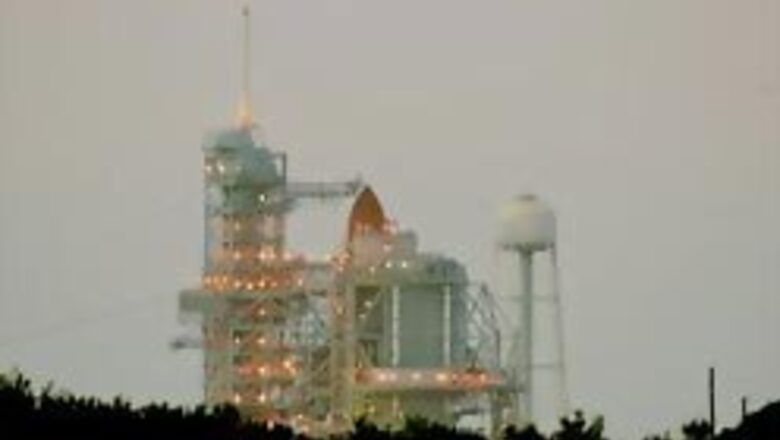
views
Cape Canaveral: NASA clung to plans for Tuesday's launch of space shuttle Atlantis even as it prepared to scrub the liftoff and pull the ship indoors to ride out approaching Tropical Storm Ernesto.
NASA had hoped to launch Atlantis on the agency's first International Space Station assembly mission since the 2003 Columbia accident on Sunday.
A lightning bolt that hit the launch pad on Friday, however, prompted a two-day delay to make sure the shuttle and its ground support systems were not damaged by the massive strike.
Ernesto may make the whole effort moot. The storm, which was downgraded from a hurricane to a tropical storm as its winds fell below 74 mph Sunday evening, could regain strength and make landfall on Thursday morning near Tampa on Florida's west coast, forecasters said.
NASA rules mandate that the shuttle be removed from its seaside launch pad and returned to a cavernous assembly building for safekeeping about two days prior to winds forecast to reach speeds of at least 58 miles per hour.
A decision on whether or not to ground the shuttle had been expected last night. But LeRoy Cain, the senior shuttle program manager at Florida's Kennedy Space Center, told reporters the final decision on whether to proceed with tomorrow's launch attempt would be made by 7 am EDT (1630 IST) on Monday.
The storm would have to make a dramatic shift for NASA to leave the shuttle on the launch pad. ''There's a general sense that the path of this storm is about as certain as it can be,'' said Cain, referring to how Ernesto is taking aim at central Florida.
As engineers scrutinized data for equipment problems from the lightning strike, and eventually cleared Atlantis for a return to flight late yesterday afternoon, NASA's shuttle team prepared to remove the winged spacecraft from the launch pad.
The shuttle's crawler transporter was prepared to move to the launch pad in case a decision was made to roll back Atlantis. Launch pad workers also set up equipment to drain the chemicals aboard the shuttle which are used during flight to generate electricity.
If NASA has to remove Atlantis from the pad, it will be hard-pressed to return in time for launch by September 7, the last day when lighting conditions and other technical considerations are acceptable for launch.
The next opportunity for flight would be in October.
The shuttle's six astronauts are scheduled to spend 11 days in orbit to deliver and install a 35,000-pound (16-tonne) power module to the International Space Station.
It would be the first mission devoted to assembly of the research outpost in nearly four years and follows a successful mission of shuttle Discovery last month to assess safety upgrades made after the February 2003 shuttle Columbia disaster.
Columbia was hit by a piece of foam insulation that fell off its fuel tank during launch. Damage from the impact triggered the shuttle's breakup as it flew through the atmosphere. All seven astronauts aboard died.
The Atlantis mission is a critical part of NASA's efforts to finish building the space station before the shuttle fleet is retired in 2010.















Comments
0 comment